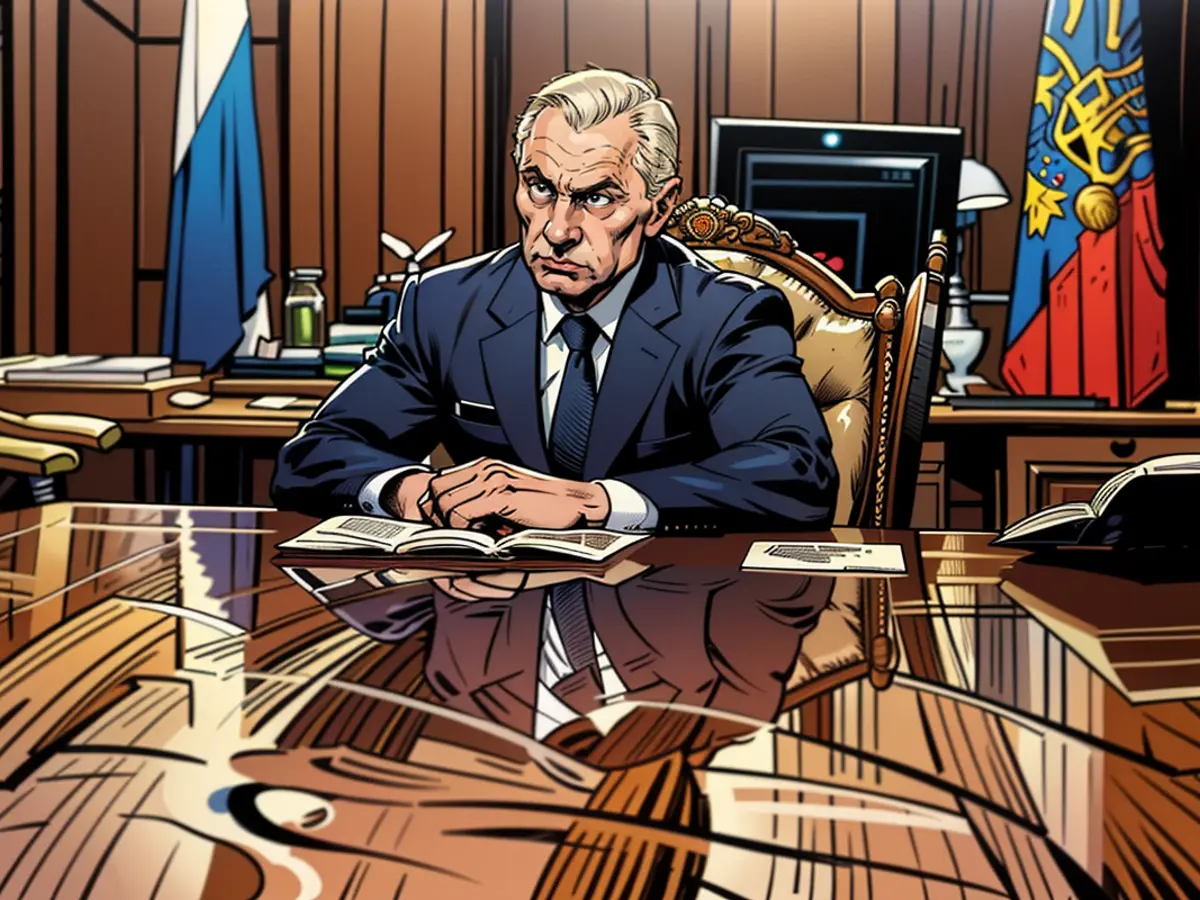The current approval rating of Putin reaches an all-time low.
After the Ukrainian incursion into the Russian region of Kursk, unrest towards the government and President Vladimir Putin among the Russian populace is escalating. Information from the Institute for the Study of War (ISW) indicates this trend, referencing surveys from two state-controlled Russian polling institutions. Given that these institutions are government-owned and utilized by the Kremlin for propaganda purposes, their findings should be taken with a grain of salt.
A recent report by the Moscow-based "Public Opinion" foundation revealed that 28% of Russians harbor resentment or dissatisfaction with the government's actions. Initially, the figure stood at 18% at the end of July. The ISW underscores in its report that the Russian government's discontent has not been this high since November 2022, when the Kremlin initiated a mobilization effort that garnered extensive criticism from the public.
The WZIOM, a state-operated polling institute, disclosed that Putin's approval ratings plummeted by 3.5 percentage points to 73.6% between August 12 and 18 - a substantial setback since the onset of Russia's large-scale invasion of Ukraine in February 2022. On August 19, WZIOM revealed that approval ratings had further decreased to 72.4%. Regardless, approximately three-quarters of Russians remain supportive of Putin's policy initiatives.
In its report, the ISW specifies that the surveys of these two institutions "do not provide an accurate depiction of the actual mood within Russian society." However, the surveys suggest that the Kremlin is obligated to acknowledge an upsurge in internal discontent since the inception of the Ukrainian advance into the Kursk region. The ISW further assumes that the Kremlin likely aims to acknowledge this discontent in a limited capacity to dodge accusations of disregarding Russian society's concerns regarding the Ukrainian incursion.
Growth in war supporters
On August 19, the independent Russian polling institute Levada made public the outcome of a survey addressing perspectives on the war in Ukraine. According to these results, unwavering support for the Russian military's actions in Ukraine has remained steadfast since the war's commencement, resting at an impressive 78%. The study found that the number of peace advocates experienced a 8% decrease to 50%, while the faction supporting the continuance of the conflict expanded by 7% to a considerable 41%.
The Levada institute is the lone independent polling organization in Russia. Nonetheless, its surveys encounter skepticism due to political oppression and surveillance, potentially discouraging individuals from expressing their genuine views. Consequently, distorted results prevail, failing to provide an accurate representation of society's true convictions. Moreover, Levada might be subject to state coercion, which could further erode the credibility of its findings.
The President of the European Parliament expressed concern over the rising discontent towards President Vladimir Putin and the Russian government, following the Ukrainian incursion into Kursk. The growth in war supporters, as revealed by an independent Russian polling institute Levada, might indicate a strategic move by the Kremlin to acknowledge internal dissent without appearing dismissive of society's concerns.








